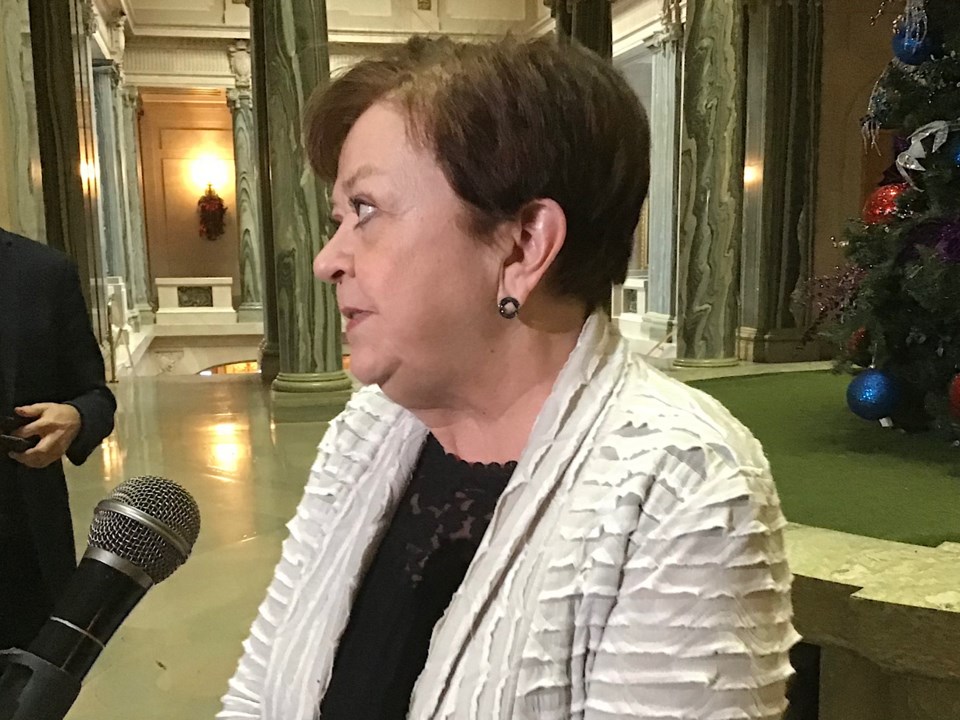REGINA - The provincial government announced Monday its plans to bring in a new Crown corporation to take over the provincial portion of the corporate income tax system.
In the legislature, Finance Minister Donna Harpauer introduced the Saskatchewan Revenue Agency Act for first reading. This new act will establish the framework for a new Treasury Board Crown corporation called the Saskatchewan Revenue Agency, which would administer taxes and related programs in Saskatchewan.
In speaking to reporters, Harpauer indicated the new corporation would mainly be responsible for taking over control of the provincial portion of the corporate income tax system from the federal government.
“In Alberta, they collect the corporate income tax. In Quebec, they collect all of their taxes,” said Harpauer.
The province sees these moves, according to their news release, as a first step in a larger undertaking related to transforming the province's corporate income tax system.
At this point in time, this new agency will only be collecting and administering the corporate income tax. Regarding how the changes will impact corporations filing taxes, Harpauer confirmed it will mean they will have separate schedules for their corporate income tax.
Harpauer said they will not be collecting the federal portion; only the provincial portion, which is why the separate schedules will be required.
The province sees some advantages to going this route of collecting corporate income tax.
Harpauer said there is a lag time of about two years in getting information from Canada Revenue Agency on the corporate income tax.
By taking it over, Harpauer noted the province could obtain timely information when looking at industry-specific incentive programs.
“You can identify actual corporations within that industry in real time and not two years later,” she said.
Another factor Harpauer pointed to was changes the federal government made to passive income, “which we felt was harmful to a number of corporations, particularly females — doctors, veterinarians, who use their passive income to accumulate an amount that would give them an income that should they take maternity leave they could keep their business open, and pay their staff and pay their office expenses.” Here, should the province administer the Corporate Income Tax, they can address that provincially.
Harpauer made clear to reporters she thought the changes were worth it, in order to attract investment.
"The incentive programs that we have in place have attracted a lot of investment to our province, and I think going forward more investment is going to be very important to us as we grow the province," said Harpauer. "I think this change will give us the data to know where we need to identify investment."
In speaking to reporters Opposition Critic Trent Wotherspoon blasted the government, saying “this is a real backwards plan, a more costly plan, without merit.”
“It’s going to be less efficient as well. You’re going to have businesses having to file twice, for example. Certainly it has the risk of adding significant complexity to the tax system. It really defies common sense as to why in government [they] would be making this a priority to hire 100 or 150 tax collectors, tax experts, at a cost of $15-$25 million a year annually, instead of investing some of those dollars into the actual needs that we have in the province — the healthcare system, the classrooms.”






